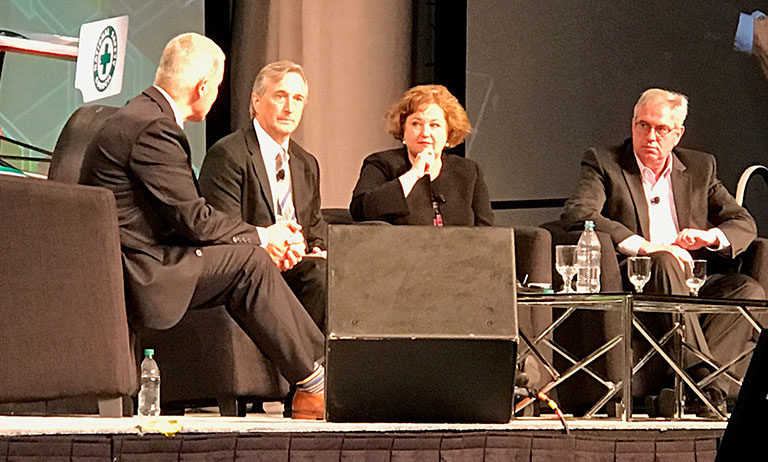Executives share insights on leadership’s role in preventing SIFs

Indianapolis – After four Dow Chemical Co. employees were killed on the job in 2016, it became Laura Ambrose’s mission to change the way the Midland, MI-based company approached serious injury and fatalities.
Ambrose, Dow’s global director of environmental, health and safety operations, presented Dow’s SIF plan at the Executive Forum on Monday during the 2017 National Safety Council Congress & Expo. Joining her were Don Martin, senior vice president of DEKRA Insight, and Peter Waite, senior director of global health, safety and environment at Eli Lilly and Co. The trio spoke about executives’ roles in preventing injuries and deaths before taking questions from the audience.
Ambrose said Dow’s “Save A Life” campaign was developed in response to flat fatality rates despite decreasing injury rates, as well as the four 2016 deaths. One of the main strategies of the campaign was to get the top 200 Dow leaders to visit worksites across the globe; the resulting revelations and discussions convinced Dow to make the group visits annual, Ambrose said.
Martin said his “paradigm shift” was discovering that 21 percent of less severe injuries were near misses – incidents that were nearly much worse. He shared another eye-opening statistic: 71 percent of fatal incidents resulted from either a breakdown in lifesaving rule processes or a breakdown in pre-task risk assessment.
“If you’re looking to get a head start in preventing SIF, those are two outstanding places to look,” Martin said.
Waite laid out the four C’s of desired leadership behavior when executives delve more into SIF: “Capability – having the right understanding of the technical landscape. Curiosity – spending time on the floor, really understanding what are we asking operations to do. Courage – to stop work and empower all teams to do the same. Character – to execute.
“These are the same characteristics needed to support operational excellence,” Waite said.
Post a comment to this article
Safety+Health welcomes comments that promote respectful dialogue. Please stay on topic. Comments that contain personal attacks, profanity or abusive language – or those aggressively promoting products or services – will be removed. We reserve the right to determine which comments violate our comment policy. (Anonymous comments are welcome; merely skip the “name” field in the comment box. An email address is required but will not be included with your comment.)

